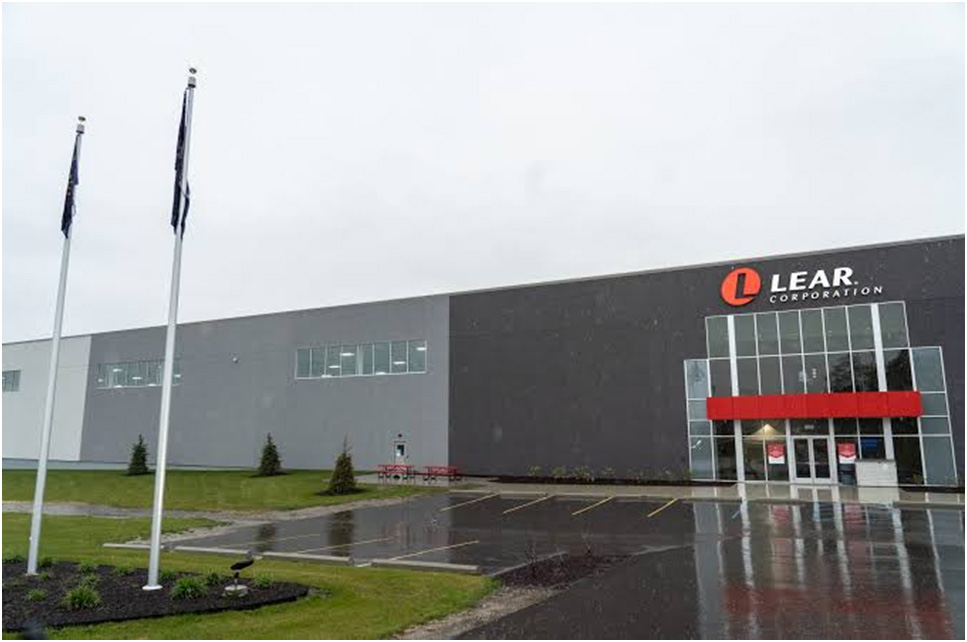As the automotive sector adapts to rapid electrification and global demand shifts, Lear Corporation (NYSE:LEA)—a global leader in automotive seating and E-Systems—has come under close scrutiny from Wall Street analysts. Based on recent assessments compiled by Nasdaq, financial experts are showing measured optimism about Lear’s position, innovation pipeline, and long-term resilience.
Lear Analyst Ratings: A Snapshot
Ten leading financial analysts have issued new ratings for Lear, resulting in a consensus that reflects moderate bullish sentiment. The average 12-month price target now sits at $155.20, implying a potential upside of approximately 10% from recent trading levels.
Of these, six analysts recommend a “Buy”, while the remaining four are aligned with a “Hold” outlook. Notably, no analysts issued a “Sell” rating, which underscores market confidence in the company’s fundamentals—even amid sector volatility.

Lear’s seating systems displayed at a global auto expo.
Source: Perception
What’s Driving the Outlook?
Several factors are influencing the Lear analyst ratings this quarter:
- Stable core business: Lear’s dominance in seating systems continues to provide dependable revenue, even as automotive OEMs shift priorities.
- E-Systems growth: Analysts point to the company’s electronic architecture and connectivity offerings as key growth drivers, especially in the era of EVs and autonomous vehicles.
- Capital discipline: Despite industry headwinds, Lear has maintained strong free cash flow and consistent shareholder returns.
“Lear has demonstrated adaptability in a complex macro environment. While not immune to supply chain disruptions, their operational focus remains solid,” noted one market strategist cited in the Nasdaq report.

Lear’s E-Systems facility supports next-gen vehicle integration.
Source: Official Lear Investor Presentation
Positioning in the Broader Market
Lear’s performance on the NYSE has closely followed trends within the S&P 500 and Dow Jones, reflecting broader market conditions. While automotive stocks have underperformed compared to tech-heavy benchmarks like the Nasdaq, Lear’s focus on electrification and in-cabin tech has helped insulate it from sharper declines.
With electric vehicle adoption rising and OEM platforms demanding high-tech integration, Lear’s dual strengths in mechanical and electronic systems are increasingly valuable. This blend could help the company outperform traditional component suppliers.
Expert Commentary: A Balanced View
Despite the positive tone, some analysts remain cautious, citing:
- Global production slowdowns
- Inflationary cost pressures on raw materials
- Currency exchange impacts from international operations
Still, the consensus points to upside potential, particularly as Lear continues to invest in innovation and digital infrastructure.
“If current trends continue, Lear’s E-Systems unit could surpass its seating segment in profitability,” noted one market analyst. “That shift could redefine the company’s future trajectory.”
Also Read: Aaron Woods and Billy Slater Lock Horns Ahead of Origin II

Lear’s global headquarters in Southfield, Michigan—nerve centre of its innovation pipeline.
Source: Detroit Free Press
Valuation Metrics and Peer Comparison
From a valuation standpoint, Lear Corporation currently trades at a forward price-to-earnings (P/E) ratio slightly below the sector average—suggesting potential undervaluation given its balance sheet strength and innovation investments. When compared with peers like Adient and Aptiv, Lear offers a more diversified mix of mechanical and electronic systems, which analysts believe could act as a defensive cushion in case of an economic downturn. Additionally, dividend consistency and a history of share buybacks make it a more shareholder-friendly stock than many of its competitors in the automotive tech space.
Investor Takeaway: Cautious Optimism
While Lear may not be the flashiest stock on Wall Street, its measured growth strategy, consistent profitability, and balanced exposure to both legacy and next-gen technologies make it an attractive play for long-term investors.
The updated Lear analyst ratings offer reassurance for existing shareholders while giving potential investors a grounded view of where the company stands in the competitive automotive tech space.
As the market evolves and the EV transition gains speed, Lear’s ability to adapt, scale, and innovate will remain the key factors driving its valuation in quarters to come.

